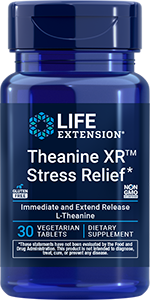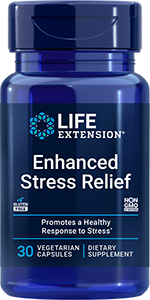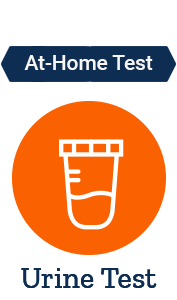Dealing with Depression and Anxiety?
How to Deal with Depression When Anxiety Already Exists
Are you dealing with depression and anxiety, together? It is not uncommon for those who suffer with anxiety to also suffer with co-existing depression. For some, depression comes after the the start of an exhausting battle with anxiety, while for others, depression is primary and anxiety comes secondary. Whatever came first, depression or anxiety, it really does not matter much, but its important to understand that they often pair together. The good news is that if you are dealing with both depression and anxiety, the same Cognitive-Behavioral approach found here on Sound-Mind.org for anxiety will work also for your depression.
According to the National Institute Of Mental Health: Depression is a common term that is used to describe sadness, low mood or emotional state, and/or the loss of pleasure. Everyone in their life will experience this type of depression at some point. However, when depressive feelings last longer than they should and are disruptive to an individual's social functioning or the activities of daily living it is considered a depressive disorder.
Depression Warning Signs
Knowing the depression warning signs beforehand will help you catch depression in it's early stages before it becomes a more serious problem. It's important to treat your depression as soon as you recognize it. Early detection means quicker recovery for most people. It's also important to know that depression warning signs can mimic other physical and mental problems as well. It is always best to discuss your symptoms with your family doctor to rule out any other causes for your symptoms.
Common Depression Warning Signs
Don't Wait! Take Action
Cognitive-Behavioral Therapy
If you feel you may be experiencing these depression warning signs, it's important to take action right away. Cognitive-Behavioral Techniques have been shown effective for treating mild and moderate depression. Cognitive Behavioral therapy is one of the best depression help methods that can be done on your own. The Steps To Recovery offers methods you can use at home to help yourself. However, some more serious forms of this disorder require prompt medical attention. People that are unable to function normally in daily activities are advised to seek help from a qualified psychologist and/or they can obtain a list of qualifying providers through their primary care physician.
Follow the 8 Guided Steps to Recovery
The same cognitive-behavioral approach taught here within this website for anxiety is also effective for depression. Do not hesitate to get started with the self-help steps below:
- 1. Self Help for Anxiety/Options
- 2. Journaling, Why It's Important
- 3. Exercise Is Necessary
- 4. Diet and Mental Health
- 5. Cognitive Behavioral Techniques
- 6. Stress Management Strategies
- 7. How To Talk To Yourself
- 8. Building Self-Confidence
THE NATIONAL INSTITUTE OF MENTAL HEALTH
If you are thinking about harming yourself, or know someone who is, tell someone who can help immediately!
Additional Resources
The Association between Alcohol Dependence and Depression before and after Treatment for Alcohol Dependence: "The prevalence of depression among alcohol-dependent persons is high. There is recovery from depression after alcohol detoxification and rehabilitation, and majority of the cases do not necessarily require treatment for the depression. In addition persons that are depressed have a significantly higher craving for alcohol after detoxification and rehabilitation. It is important to screen for depression and evaluate to determine the treatment needs during detoxification and rehabilitation."
Cognitive Behavioral Therapy for Depression by Donna M. Sudak, MD: "Cognitive–behavioral therapy (CBT) for depression is one of the best researched treatments in all of medicine.1 As developed by Aaron T. Beck in the 1970s,2 CBT for depression employs the highly potent strategies of behavioral activation and the relapse-preventing interventions of belief change and cognitive restructuring. As this article discusses, CBT is also substantially more durable than medication in patients who respond to treatment. Because not all patients with depression respond to medication, and many continue to have residual symptoms that interfere with their quality of life and incur a risk for relapse, CBT can play a major role in the treatment of this significant, often deadly public health problem."
Low-carbohydrate diet as a nutritional intervention in a major depression disorder: focus on relapse prevention:"The study revealed significant impact of nutritional interventions based on restriction in carbohydrate intake such as LCHD, KD or sugar-sweetened beverages (SSB) exclusion on anxiety or depression symptoms reduction, mood improvement and lower risk of cognitive impairment or depression. The efficacy of these approaches is further substantiated by their underlying molecular mechanisms, mainly brain-derived neurotrophic factor (BDNF) which is a potential key target of sugar restriction diets in terms of neuroplasticity."
Retrain Your Brain: Cognitive Behavioral Therapy in 7 Weeks: A Workbook for Managing Depression and Anxiety – by Seth J. Gillihan PhD (Author), "Research has shown that cognitive behavioral therapy (CBT) is one of the most effective techniques for finding relief from depression and anxiety. After 15 years of successfully treating patients using cognitive behavioral therapy, Psychologist Dr. Seth Gillihan developed this self-directed 7-week plan that teaches you practical CBT techniques that can help you feel better."
Guided Steps to Recovery
Natural Supplements
Want to recover without using medication? There are many different kinds of supplements that are available and very effective in helping people combat the physical symptoms of anxiety.


